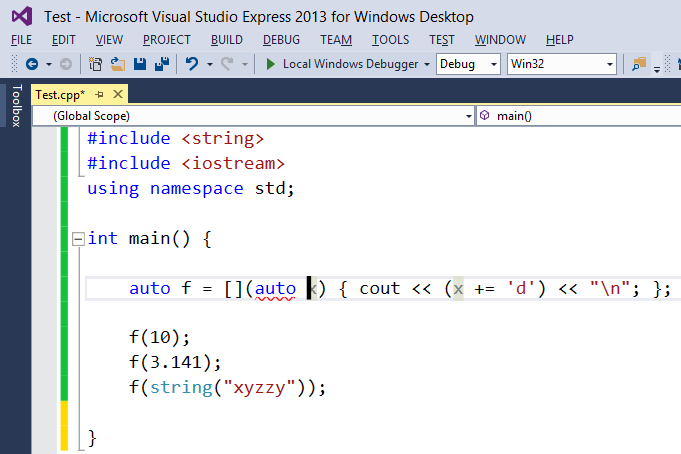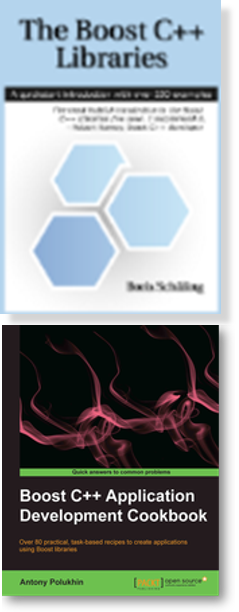Visual C++ November 2013 CTP released, adds 13 new C++11/14 features

Announcing the Visual C++ Compiler November 2013 CTP
In addition to the ISO C++ features added in last month's Visual c++ 2013 full release, this CTP adds the following additional ISO C++11 and draft ISO C++14 features in preview form:
-
Implicit move special member function generation (thus also completing
=default) -
Reference qualifiers on member functions (a.k.a. "
&and&&for*this") - Thread-safe function local static initialization (a.k.a. "magic statics")
- Inheriting constructors
-
alignof/alignas -
__func__ -
Extended
sizeof -
constexpr(except for member functions) -
noexcept(unconditional) -
C++14
decltype(auto) - C++14 auto function return type deduction
- C++14 generic lambdas (with explicit lambda capture list)
-
(Proposed for C++17) Resumable functions and
await
The new CTP installs as a new toolset under the Visual C++ 2013 IDE, allowing editing and building using the new Visual C++ compiler through the current shipping IDE. As this is a CTP, however, there is not yet other IDE support, and so for example the IDE may display red squiggles on valid code that will actually compile and run, as shown in the accompanying screenshot which exercises a generic lambda function having an auto parameter. If you do not already have a copy of Visual C++ 2013 installed and would like a free copy, several versions of the Visual C++ 2013 Express optimizing compiler are available for free via the Visual Studio Downloads page.

 A new stable release of
A new stable release of  Well timed with the recent release of Boost 1.55, a new
Well timed with the recent release of Boost 1.55, a new  The STE||AR Group at Loisiana State University has released V0.9.7 of HPX -- A general purpose parallel C++ runtime system for applications of any scale.
The STE||AR Group at Loisiana State University has released V0.9.7 of HPX -- A general purpose parallel C++ runtime system for applications of any scale. Coming next week on Microsoft Virtual Academy:
Coming next week on Microsoft Virtual Academy: